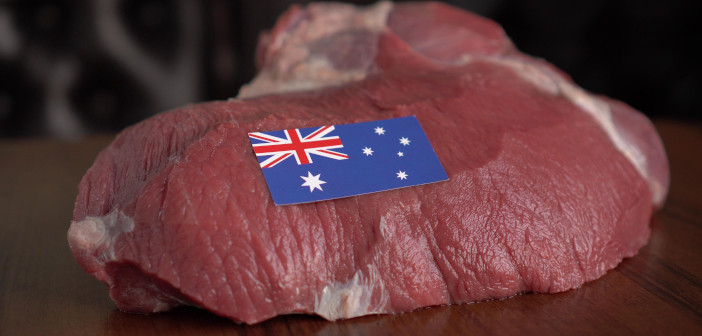A new report from the independent think tank, ResPublica, has found that the UK-Australia and UK-New Zealand trade deals have no enforceable safeguards to protect either UK farmers or UK animal welfare standards.
According to the report’s authors, the trade deals contain only ‘watered-down commitments’ to ‘provide a forum for ongoing cooperation’ on animal welfare standards. So, abidance with UK welfare standards will not be assured on imported meats.
As a result, lower standard, cheaper meat could flood the UK market – undercutting British farmers. While there are also concerns that the deals could set a substandard precedent for any future trade agreements.
ResPublica’s report therefore sets out a number of recommendations for future trade policies:
- Trade liberalisation, in the form of tariff and quota reductions, should be linked to meeting environmental and animal welfare standards in production. Additionally, the UK should seek to control imports on the basis of its production.
- The UK should adopt – in collaboration with appropriate industry and civil society partners – a set of core production standards in the agri-food industry that will apply to any future trade deals and import policy more broadly. Any liberalisation should be conditional on meeting such core standards.
- Free trade agreements (FTAs) should contain strong and specific wording which commits all parties to: promote cooperation on welfare standards internationally; cooperate on future research on animal welfare standards; recognise and maintain food safety standards in the country where these are strongest; and freedom to introduce labelling regimes on both home produced and imported products.
- The UK should work towards the harmonisation of animal welfare and environmental standards within trade agreements, ensuring there is no regression in standards and mutually raising such standards where appropriate.
- The UK should seek all possible opportunities to show leadership in international forums, including the Organisation for Animal Health (OIE), International Plant Protection Convention (IPPC) and Codex Alimentarius for food safety standards, to drive global agreement and recognition of high standards in food safety, animal welfare and environmental protection.
- The UK should take opportunities at the World Trade Organisation (WTO) to promote agreement that Article XXa of the General Exceptions covers animal welfare; using the language in both Australia and New Zealand FTAs which encourages cooperation in the WTO and allows the use of Article XXa in trade policy decisions.
- The UK government should mirror the approach it has already taken with the EU through the Trade and Cooperation Agreement: zero-tariff, zero-quota trade on a conditional basis.
- FTAs should include provision for the creation of forums which can facilitate the checking of production standards in importer countries.


